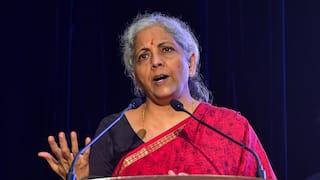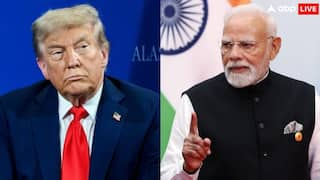Union Budget 2022: Long Wishlist Of Startups Trying To Recover From Covid Impact
Companies expect the government to expand on the startup and Made in India initiative to help home-grown brands grow and thrive in the Indian market.

New Delhi: Prime Minister Narendra Modi has been a strong proponent of India's growing startup ecosystems. In 2016, the Startup India initiative was launched by the prime minister for building a robust startup culture in the country. And in the last five years, startups in India have grown to over 60,000 from less than 500, reveals government data.
As the sector now grapples with the Covid-19 pandemic’s impact on economy, all eyes are on Finance Minister Nirmala Sitharaman who will present the Union Budget 2022-2023 in Parliament on February 1.
Tax exemption is highly anticipated from the budget along with startup-friendly policies that can enable companies to spend on innovation, enhance ease of doing business and reduce compliance costs. Subsidies is another factor that a lot of companies would be expecting, particularly the electronic vehicle sector.
Companies are also hoping the government to expand on the startup and Made in India initiative to help home-grown brands grow and thrive in the Indian market.
We spoke to a host of leaders from the startup companies who had varied expectations from the Union Budget. Here's a look.
Extention of FAME Subsidy Corpus
Dr. Akshay Singhal, Founder, Log9 materials, said, "In the upcoming Union Budget, from the EV ecosystem perspective, we hope to see that the FAME Subsidy corpus should be extended to EV retro fitment kits. Additionally, more R&D incentives should be given for energy storage and EV technology-related developments in India, as well as R&D investments made into local technology developments, which should be made 100% adjustable against corporate taxes."
Financing Options For EV Commercial Vehicle Buyers
"At a time when EV adoption is gaining unprecedented momentum despite many challenges, in the upcoming Union Budget 2022, we at Etrio would like to see the Finance Minister address the critically-important area of making wide and varied range of financing options available for EV commercial vehicles' buyers – as this is extremely critical for further increased uptake of EVs in India, going forward,” said Deepak MV, CEO & Co-Founder, Etrio.
To this end, he added, the government should make the EV sector a priority lending sector for the financial institutions. “Additionally, reducing the GST taxation on Lithium-ion batteries and EV spare parts and components can also be a great step forward from the EV manufacturing and OEM point of view. Given that increased adoption of EVs in the logistics and last-mile delivery segment is the need of the hour to reduce Carbon emissions, the Government must also come up with additional sops or incentives for the nation’s fleet aggregators to switch entirely from IC engines to EVs in order to pave a sustainable and zero-emissions future. Last but not the least, we also hope that this Budget answers the need for revitalizing the B2B retrofitment (ICE to EV conversion) space pan-India by bringing retrofitment under the ambit of FAME-II."
Textile and Fashion Industry Require Urgent Reforms
Abhishek Pathak, Founder & CEO, Greenwear: "I expect the budget to lay down a 5-year plan to increase participation/usage of renewable energy resources by decentralized small industries and craft sector. The government should ensure growth in procurement from start-ups working with renewable energy resources. The textile industry alone has the potential to reduce carbon footprint by a huge margin along with creating jobs at the local level. The textile and Fashion industry needs urgent reforms in order to reduce polluting earth. We are taking one step at a time and currently are very small against the problem. However, we believe that the solar-vastra value chain if added with natural fibers and organic processes will create an immense impact in reducing carbon footprint from the textile industry. If only 5% of Indian villages become solar charkha clusters (around 30,000), it can produce 180 Cr kgs cotton yarn which is almost 50% of India’s current cotton yarn capacity, and generate livelihood for 1.2 Cr people without migrating from their villages.”
Expand Make in India Initiative
Shivam Singhee, CEO & Co-Founder, Awshad, said: “As a startup in the wellness and medical cannabis space, we have benefited from the earlier government initiatives like the startup initiative and the Make in India initiative that helped us create a space for ourselves. However, in 2022 we hope to see the Government expand on these schemes and help home-grown brands grow and thrive in the Indian market. We also hope there will be incentives in place to help Indian brands expand their markets internationally and help bring FDI to the exponentially growing wellness sector. We also hope the government will offer more tax relaxation to startups in the wellness space to help them compete with giant multinationals eyeing to control this sector."
Extension of Tax Holiday for Startups
Dr. Navneet Gupta, Founder & CEO at YPay: “Extension of the tax holiday for startups would be a great way for the government to show its commitment towards building a robust and dynamic startup environment. Investment into infrastructure that would promote digital payments needs to continue rapidly. There is so much unexplored potential in Tier-2 and 3 cities, let alone villages. The pace of investment only needs to go up if this potential is to be meaningfully utilized. For Neobanks and PPI companies such as ours, the idiosyncrasies of and changes in KYC requirements are actually a major nuisance. KYC norms lead to several problems such as registration issues for customers. And finally, the government needs to see the fintech industry as a partner in helping formalize the economy and getting banking services to those who do not have access to them."
Policies for Unorganised Sector
Neha Indoria, co-founder, Boingg! (D2C children's furniture brand): 'The expectation from the budget is that it would augment a push towards the organised sector of India's furniture market, especially the kid's furniture market (online & offline). We expect policies that level the playing field for the largely unorganised sector in India and also help augment the export market which at this point can be capitalised on given the global tendency to shift away from the Chinese market.'
Ease of Doing Business
Pankit Desai, co-founder & CEO, Sequretek (Mumbai based Cybersecurity company), said: “For startups the fundamental issue continues to be ease of doing business and helping ease cash flow challenges.”
She suggested some of the specific areas where some better support is desirable. These are:
- Employee stock options especially around the taxation impact when the stocks vest (but not exercised) and provision for founders to receive ESOPs.
- There is no difference in the regulatory compliances like ROC, GST, IT, RBI whether you are a startup or a large company. The amount of paperwork that is needed to run the company remains the same.
- By default for the period that you are a registered startup, one needs to be in a lower TDS bracket as the cash flow issues are quite severe.
Tax Exemptions on Funds Received and GST Reduction
Rohan Verma, Co-founder and CEO, Breathe Well-being (Health-tech, digital therapeutics company focused on Type 2 Diabetes Reversal and management), said: "India is home to over 5000 health focused startups and with innovative health-tech players coming into the market there is a rising interest among the Indian as well as International investor community. According to recent data from London & Partners and Dealroom.co, India has received $1.9 billion funding from VCs in 2021, bringing total VC investments in the health-tech sector to $4.4 billion since 2016. Today, India ranks 4th globally for VC investments in the health-tech space, behind the US, China and the UK. As Indian tech-driven enterprises in the healthcare field are constantly developing and curating solutions to support India's healthcare infrastructure, the government should consider tax exemptions on funds received and a GST reduction to 3% from the existing 18%. The government should support digital-health startups who are investing heavily in infrastructure by relaxing regulations and providing assistance or exemptions from some mandated compliance requirements."
Promote Start-Up Ecosystem
Vipul Singh, Founder & CEO of Aarav Unmanned Systems (AUS): “In this Union Budget, we expect the government to promote the start-up ecosystem in the country and announce steps that will ease raising funds and create a favourable environment to conduct business. With Covid 19 pandemic, we have witnessed an accelerated process of digital transformation. We cannot deny that the pandemic has pushed people and businesses to adopt new ways to do things and reorient their behaviours. The government's announcing the Drone Rules 2021 and PLI scheme for the drone industry has given a push to this industry. Many drone companies in India have signed new deals to start large-scale, commercial business-to-business (B2B) drone operations in 2022. With this budget, we expect the government to simplify policies, create a strong credit system for MSMEs and provide better working capital support that would help drone companies to scale up manufacturing and leverage the production-linked incentive (PLI) scheme. We will also witness employment opportunities which we believe are important for revival in demand post covid era.”
PLI Schemes For Robotics Sector
Satish Shukla, Co-founder & Head - HR & Marketing, Addverb Technologies on 'Budget Expectations For Technology & Start-Up Sector: "During Covid-19, it became pretty evident that the entire premise of depending on the global supply chain won't work in the Covid era and to avoid disruptions India would need its own manufacturing base. Subsequently, the government has taken crucial steps in this direction by introducing the PLI Schemes, these PLI Schemes must also be extended to the Robotics sector as this will encourage global players to Make-In-India and also give a boost to Indian robotics companies. At present many Indian companies are importing the robots from outside, especially China and Robotics as a sector is poised for growth globally."
Framework to Regulate Usage of Cryptocurrencies
Amit Nawka, Partner - Deals and India Startup Leader, PwC India, has these suggestions:
● Create specially designed financing schemes to support the startup ecosystem - for instance, supporting digital lending startups which have all faced stress during the pandemic.
● Provide directional clarity on the framework to regulate the usage of cryptocurrencies and cryptocurrency startups.
● A significant part of employee compensation in startups is through ESOPs. Moving the chargeability of tax to the date of sale of shares, i.e., when the employees eventually realise cash consideration will be beneficial to the employees.
● Allow greater access to capital and provide further clarity on the regulations allowing the overseas listing of Indian companies including relevant amendments to the income tax sections.





































